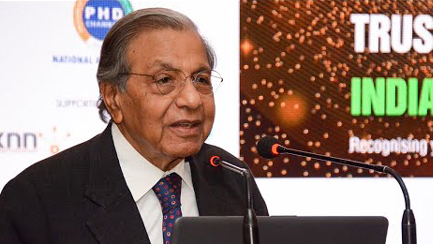|
SERVICE TAX
2019-TIOL-3445-CESTAT-ALL
Anjuman Islahul Muslimin Vs CC
ST - The assessee is a society registered under Societies Registration Act for the purpose of undertaking various charitable activities - They provide charitable activities in relation to cremation of unclaimed dead bodies, organizing Eid Milan, running & maintenance of Masjid and Graveyard and other activities for Muslims - They are also running an orphanage and are providing free lodging, food and educational expenses to the inmates of orphanage and also to other persons - The assessee had let out some of the shops located in premise which has Masjid or the orphanage being run by them - The issue in the present case is as to whether renting of said shops located in Masjid precincts would attract service tax liability under category of "Renting of Immovable Property Services" - Merely because the assessee, being a society, is maintaining the Mosque will not turn them into a religious body, though the same may be a charitable organization - The renting activity is not being done by Mosque but the same is being undertaken by society, which itself is not a religious body - As such, no merits found in the contention of assessee that assessee's society being engaged in religious activities would get excluded from the definition of 'Renting of Immovable Property' - Inasmuch as renting of immovable property cannot be considered to be a charitable activity, the Lower Authorities have rightly denied the benefit of the Notification in question - However, the demand stands raised for the period 2009-10 to 2013-14 by way of issuance of SCN, by way of invoking longer period of limitation - Admittedly the issue involved is a bona fide issue of interpretation inasmuch as the assessee being a charitable organization could have been under a bona fide belief that no tax liability would arise against them - Revenue has not produced any positive evidence to show that such tax liability was not being discharged by the assessee with a mala fide intent to evade payment of duty - In the absence of any evidence, the demand would be hit by bar of limitation - However a part of the demand would fall within the limitation period for which purpose the matter is remanded to the Original Adjudicating Authority for quantification of the same falling within the limitation period - As there was no mala fide on the part of assessee, imposition of penalty upon them is not justified, same is set aside: CESTAT
- Appeal disposed of: ALLAHABAD CESTAT
2019-TIOL-3444-CESTAT-BANG
Bharat Sanchar Nigam Ltd Vs CC, CE & ST
ST - The assessee-company is a major provider of telecommunication services and is registered to provide telephone/telex/telegraph services - An SCN was issued to it, alleging that the assessee also provided and collected charges on non-taxable services including rental from junction links, inter-connection link charges, port charges & infrastructure charges, but gave no intimation regarding maintenance of separate accounts for input services for taxable and exempted services - The Revenue alleged that during the relevant period, the assessee utilized Cenvat credit in excess of the 20% limit - Hence the SCN proposed to recover the excess credit utilized along with interest under proviso to Section 73(1) of the Finance Act 1994 r/w Rule 14 of CCR 2004 - Demands for interest were also raised along with penalties u/s 77 & 78 of the Finance Act 1994 - Such demands were confirmed by the adjudicating authority - Later, the Tribunal remanded the matter, whereupon the adjudicating authority re-iterated the duty demands - Hence the present appeal.
Held - The issue at hand is no longer res integra and it stands settled by the Tribunal in Idea Cellular Ltd. Vs Commissioner of Central Excise, Rohtak and in the case of BSNL Vs Commissioner of Central Excise, Lucknow that the 20% restriction in Rule 6(3)(c) applies only to credit on inputs and input services and not to credit on capital goods - However, in the present case, on account of specific details being unavailable, it cannot be determined as to whether or not the assessee exceeded the 20% limit of input/input services credit - Hence it is fit case for remand for examining the same - If such limit is found to have been exceeded, the the demand would be sustained to such extent only - Considering the circumstances at hand, it is a fit case to invoke provisions of Section 80 and quash the penalties even if a portion of the demand is sustained after re-calculation - Hence the penalties merit being set aside - The appeal be disposed of on such terms: CESTAT
- Case remanded: BANGALORE CESTAT
CENTRAL EXCISE
2019-TIOL-3443-CESTAT-AHM
Classic Marble Company Pvt Ltd Vs CCE & ST
CX - The issue involved is the admissibility of Cenvat Credit in respect of services such as Cab Operator, Commercial and industrial construction for canteen, Tarpaulin shed supply of tangible goods for use, Air Travel Agency, Cleaning Activity, Travel Agency and Courier Service - As per the use of services explained by assessee, they are entitled for Cenvat Credit - The cab operator service is used by employees for attending outside work and the same is not used for their personal use or consumption - Therefore, having considering the exclusion clause which came into force from 01 April, 2011, cab operator service is indeed used for the business of assessee’s company - Therefore, it is an eligible input service - The Commercial and Industrial Construction service was used for construction of canteen which is a part of setting-up of factory which is specifically included in the exclusion clause of definition of input services up to 01 April, 2011 - The assessee have given up the claim of credit on these services for the period after 01 April, 2011 - Therefore, the demand of the same is upheld - As regard the erection of Tarpaulin shed, it is observed that temporary shed is used for storage of raw material and finished goods for protection of the goods from rain water - Therefore, it is directly used in or in relation to manufacture of final product - As regard Air Travel Agency, the air travelling is used by employees of the company for company’s business work, therefore, it is not the service which is used for individual - As regard cleaning activity, since it is marble manufacturing industry, it creates lot of dust and particles which needs to be cleaning on regular basis to carry uninterrupted production activity - Similarly, the pest control is also very much necessary for such pollution prone industries - Therefore, cleaning activity is directly used in manufacture of the final product - Travel agency service is again used for the employees for performing the outside duties for the companies - Therefore, it is used for the overall business of the company not for the individual’s personal use - Courier service is used for movement of samples, raw materials and mostly for authorized documents such as orders, quotations, marketing documents, instruction and cheques - These activities are directly used in or in relation to manufacture as well as business of assessee’s company - Revenue could not bring anything on record contrary to the use of services presented by assessee - All the services are indeed input services and eligible for Cenvat Credit - Accordingly, the impugned order is set aside: CESTAT
- Appeals allowed: AHMEDABAD CESTAT
2019-TIOL-3442-CESTAT-DEL
Shri Hare Krishna Sponge Iron Ltd Vs CCE & ST
CX - The assessee is engaged in manufacture of iron and steel products - Their main raw materials are pig iron, coal and sponge iron - The finished goods/ products are MS ingots and steel grits - During physical verification of stock of raw material and finished goods, a panchnama was drawn - The Revenue took a declaration of stock of raw material and finished goods as per record from Shri Ajay Kumar, Authorised Signatory - It appeared to Revenue that assessee have admitted the clandestine removal - Accordingly, SCN was issued - From a plain reading of statement recorded from the Director, it is evident that there is no categorical admission of any clandestine removal - The Director has made it clear that they record the issue of raw material for production and the quantum of finished goods produced on estimate basis - Only when the goods are sold, they are sold on the basis of actual weight as recorded by the weigh bridge - The raw material and finished goods are bulk in nature, are issued for production on volume basis and similarly production record is also maintained on volume basis (approx. weight) - Further, it is noteworthy that the finished goods at the time of completion of process, are in hot stage, and cannot be immediately weighed - Thus, in such manner of stock keeping therefore is bound to be variation - Further, the variation found are within the tolerable limits and not huge - Accordingly, no case of clandestine removal established from the record - This Tribunal have held that only for the shortage found at the time of physical verification, does not lead to the conclusive evidence of clandestine removal - Accordingly, the charge of clandestine removal is not sustained, there is no corroborative evidence against the assessee: CESTAT
- Appeals allowed: DELHI CESTAT
CUSTOMS
2019-TIOL-3441-CESTAT-MUM
Tata Precision Industries India Ltd Vs CC
Cus - The appeal is directed against impugned order wherein the Commissioner (A) has upheld the order of Assistant Commissioner - The assessee and the overseas supplier had a joint venture on 50:50 basis - They had imported capital goods, plant machinery and equipment from the supplier during period 1998-99 to 2000-01 - The importer had vide letter dated 12.07.2006 stated that they had not made any imports from their collaborator and its associate/affiliates thereof during the period 1999 to 2006, contrary to their response at questionnaire - The importer did not submit any documents as stated by them during the personal hearing held before adjudicating authority and did not responded to the letter dated 28.12.2006 of the adjudicating authority seeking those documents - Thus adjudicating authority was constrained to process the case on the basis of viable documents and records - After considering the documents and evidences available on record adjudicating authority decided the matter - The impugned orders have been passed without considering the defence submissions and hence is in violation of principle of natural justice, which clearly state "audi alteram partem i.e. nobody should be condemned unheard" - Hence the matter is remanded back to the concerned adjudicating authority for reconsideration - While deciding the matter in remand proceedings, he should allow the party to produce all the defence submissions and after consideration of the same decide the matter afresh by a speaking order: CESTAT
- Matter remanded: MUMBAI CESTAT
| |



ADAHEAD_15.jpg)




